You’ve arrived in Moshi, a charming town nestled at the foot of Mount Kilimanjaro, and you’re ready to explore. As the gateway to Africa’s highest peak, Moshi offers a unique blend of natural attractions, cultural experiences, and adventure activities that make it an ideal destination for travelers.
The town is known for its coffee production, with the fertile volcanic soils on the mountain slopes allowing for coffee and bananas to thrive. As you explore Moshi, you’ll be treated to stunning mountain views and a chance to experience the local culture. Many tourists overlook Moshi, rushing to or from Kilimanjaro, but you’re about to discover the top experiences that make it worth staying for.
Discovering Moshi: Gateway to Kilimanjaro
As the gateway to Kilimanjaro, Moshi offers a unique blend of cultural experiences and breathtaking natural beauty. You can explore this charming town and its surroundings, enjoying the cool weather and fertile landscape.
Location and Geography
Moshi is situated at the foot of Mount Kilimanjaro in northern Tanzania, close to the Kenyan border. The area boasts an altitude of 890 meters, providing a cool climate year-round. The volcanic soil makes the region fertile, ideal for coffee and banana cultivation.
![]()
Cultural Background
The town is home to three main tribal groups: the Chagga, Pare, and Maasai. The Chagga are the dominant tribe, known for their hard work and business acumen. You will find that the local people are friendly, and many speak good English, although Swahili is the main language spoken.
Best Time to Visit
The best time visit Moshi is during the dry seasons, from June to October and December to February, when the weather is ideal for outdoor activities and mountain visibility is at its best. Alternatively, consider visiting from March to May or in November for fewer crowds, though there’s a higher chance of rain.
To get to Moshi, you can fly into Kilimanjaro International Airport, which is a convenient way get to the town, and then take a shuttle or taxi.
Mount Kilimanjaro: Africa’s Highest Peak
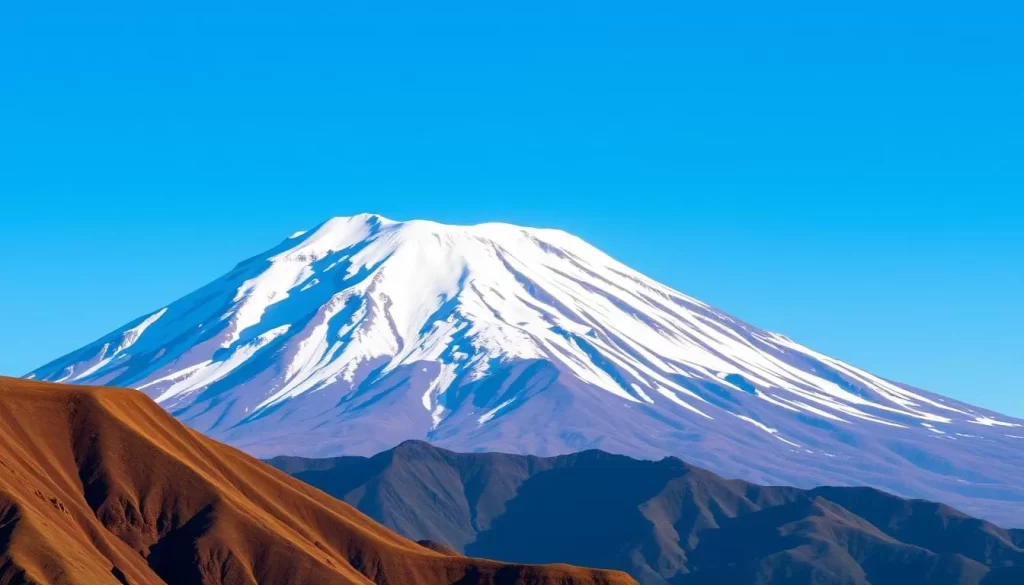
The breathtaking view of Mount Kilimanjaro is the first thing that strikes you when you arrive in Moshi. This dormant volcano, standing at 5,895 meters above sea level, is not only the highest mountain in Africa but also a significant landmark known as the “Roof of Africa.” Mount Kilimanjaro attracts approximately 45,000 tourists every year, all drawn to the challenge of reaching its summit.
Reaching the top of Mount Kilimanjaro is considered one of the most challenging adventures globally, yet it’s achievable for those with mental preparedness and a moderate level of fitness. The climb can take anywhere from five to ten days, depending on your chosen route, physical ability, and time available.
Climbing Routes and Difficulty Levels
There are seven different hiking routes to the summit: Umbwe, Shira, Rongai, Mweka, Marangu, Machame, and Lemosho. Each route offers a unique experience with varying scenery, including wildlife, volcanic features, forests, and coffee and banana plantations, as well as different climatic zones. The Machame route is considered the most challenging but also offers the most spectacular scenery.
Kilimanjaro Day Hikes
For those with limited time or on a tighter budget, the one-day Mount Kilimanjaro hike to Mandara Hut is a viable option. This day hike allows you to experience a part of the mountain’s majesty without committing to a multi-day trek.
Best Views of the Mountain
The best views of Mount Kilimanjaro can be enjoyed from various viewpoints in Moshi, including hotel rooftops and specific locations in town. It’s highly recommend to view the mountain during the early morning or late evening when clouds are less likely to obscure the peak.
Whether you choose to hike Mount Kilimanjaro or simply enjoy the views, this mountain is sure to leave a lasting impression. With proper planning and preparation, your experience on the mountain can be both safe and enjoyable.
Materuni Waterfall: A Hidden Gem

The Materuni Waterfall, a hidden gem near Moshi, offers a serene escape into nature’s splendor. Located about 30 minutes from the town, this stunning waterfall is surrounded by lush valleys, hills, coffee plantations, and rainforest, making it one of the most beautiful natural attractions in the area.
Hiking to the Waterfall
The hike to the Materuni Waterfall is an experience in itself, offering breathtaking views of the Mware River valley and Kilimanjaro’s lower slopes. The trail is approximately a 30-minute walk, which can be moderately challenging due to the mountainous terrain. Along the way, visitors can spot colorful chameleons and other wildlife, adding to the excitement of the hike.
As you make your way through the lush surroundings, the sound of the waterfall grows louder, building anticipation for the breathtaking sight that awaits. The waterfall is an impressive 80 meters (262 feet) high, and its beauty is particularly spectacular after heavy rains.
Swimming and Photography Opportunities
The pool beneath the waterfall offers a refreshing spot for visitors to swim when water conditions are favorable. The surrounding area is also a photographer’s paradise, with numerous spots to capture the waterfall’s majesty. For the best photography results, consider visiting during the late morning or early afternoon when the lighting is optimal.
Most tour packages to the Materuni Waterfall combine the visit with a coffee experience in the nearby Chagga village of Materuni. This allows you to explore the local culture and learn about the coffee-making process in the area surrounding the waterfall, where the water flows.
Coffee Plantation Tours
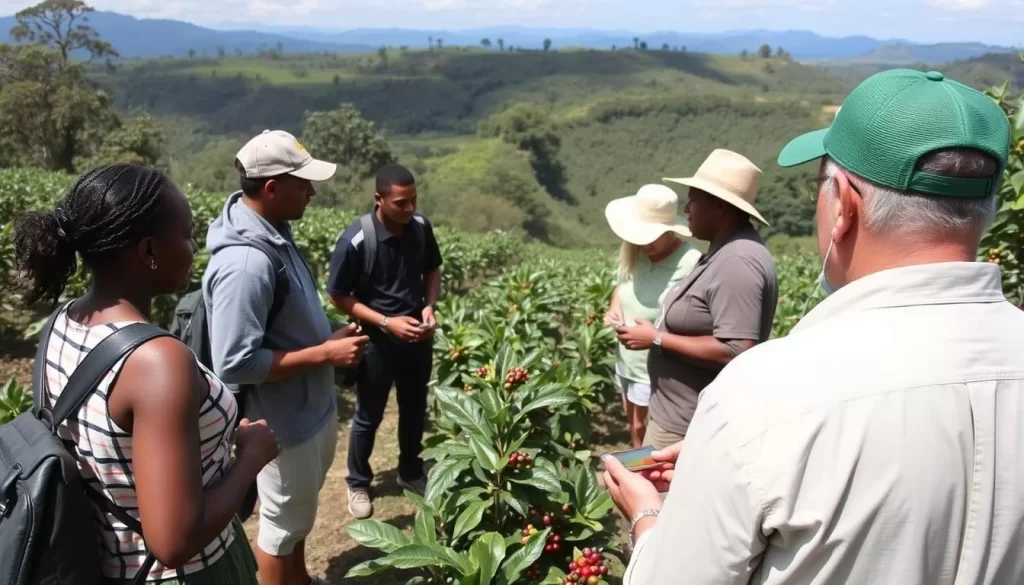
As a major coffee hub, Moshi invites you to explore its coffee plantations and discover the journey of coffee from bean to cup. Moshi is one of Tanzania’s leading coffee-producing regions, known for its high-quality Arabica coffee. The private coffee plantations, mostly located at the foot of Mount Kilimanjaro and in villages like Materuni, offer a unique insight into the coffee production process.
The Coffee-Making Process
The coffee tour experience is comprehensive, allowing visitors to participate in all stages of coffee preparation. You will learn about the planting, harvesting, and processing of coffee beans. The tour is often led by local farmers who share their knowledge and expertise, providing a firsthand experience of the labor and care that goes into producing high-quality coffee.
During the tour, you can join in separating beans from husks, sifting, roasting, grinding, and brewing over an open fire. These activities are often accompanied by traditional Chagga songs and dances, adding a cultural dimension to the experience.
Tasting and Buying Local Coffee
The coffee tasting experience is a highlight of the tour, allowing you to savor the distinct flavor of Kilimanjaro coffee. You will learn about what makes this coffee unique and how it is produced. After tasting, you can purchase authentic local coffee to take home, supporting local farmers and taking a piece of Moshi’s coffee culture with you.
Best Coffee Shops in Moshi
If you prefer to enjoy coffee within the town, Moshi has several excellent coffee shops. The Coffee Union, located in the city center, is a must-visit, having been in operation since the 1930s. Other notable cafés include Coffee Lounge, Kilimanjaro Coffee Lounge, and the café at the old railway station. These shops offer a range of coffee experiences, from traditional Tanzanian coffee to modern coffeehouse ambiance.
Kikuletwa Hot Springs: A Natural Oasis

Kikuletwa Hot Springs, also known as Chemka or Maji Moto, is a breathtaking natural wonder situated in the arid Sanya plains. Located about 1.5 hours from Moshi, in the village of Rundugai, this hot springs area offers a unique day trip experience. The geothermal water maintains a pleasant temperature of around 27°C (81°F) year-round, making it ideal for swimming and relaxation.
Activities at the Springs
The hot springs are not just a place to relax; they offer various activities. You can swim in the crystal-clear water, snorkel to spot small fish, or simply relax surrounded by nature. There’s also a rope swing attached to a tree that allows for impressive jumps into the water. If you’re visiting with family, inflatable rings are available for rent for those who cannot swim.
Practical Information for Visitors
When planning your visit, it’s best to arrive early in the morning to avoid crowds, especially on weekends. The entrance fee is 10,000 TSH, and there are facilities available on site. Be aware that during the low season (April-May), crocodiles may occasionally be spotted, making it unsafe to visit. You can reach the hot springs by driving, and there are transportation options available from Moshi. Spend your time wisely and enjoy the serene area surrounding the springs.
Lake Chala: The Stunning Crater Lake
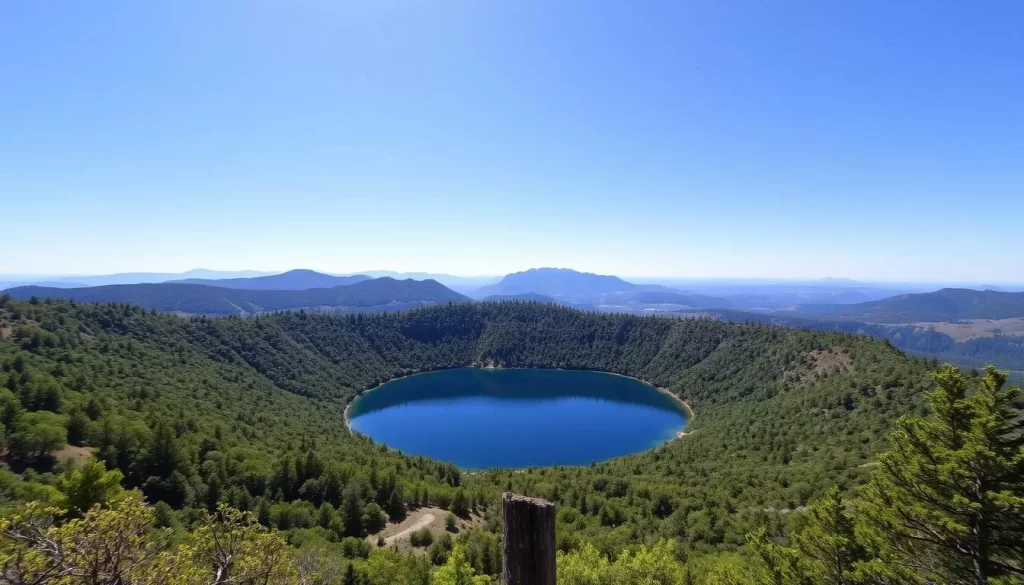
About two hours from Moshi, you’ll find Lake Chala, a picturesque crater lake nestled between Tanzania and Kenya. This natural wonder was formed around 250,000 years ago due to a significant volcanic eruption, creating a deep and striking azure-blue lake.
The lake’s color changes throughout the day, depending on the light conditions, ranging from deep blue to crystal clear waters. Lake Chala spans about 4 square kilometers, with the border between Tanzania and Kenya running through its middle.
Kayaking and Swimming
One of the most popular activities at Lake Chala is kayaking, allowing you to paddle around the lake’s perimeter and enjoy the serene surroundings. The lake is considered one of the few in Africa that is safe for swimming, as it’s free from hippos, crocodiles, and schistosomiasis.
Wildlife Viewing Opportunities
The area around Lake Chala is teeming with animals, including colobus monkeys, baboons, and blue monkeys. You might also spot dik-diks and various bird species, including numerous raptors. Occasionally, elephants and elands can be seen migrating between Kenya’s Tsavo West National Park and Tanzania.
The water in Lake Chala is filled and drained by underground streams, making it a unique and fascinating natural phenomenon.
Marangu Village Cultural Experience
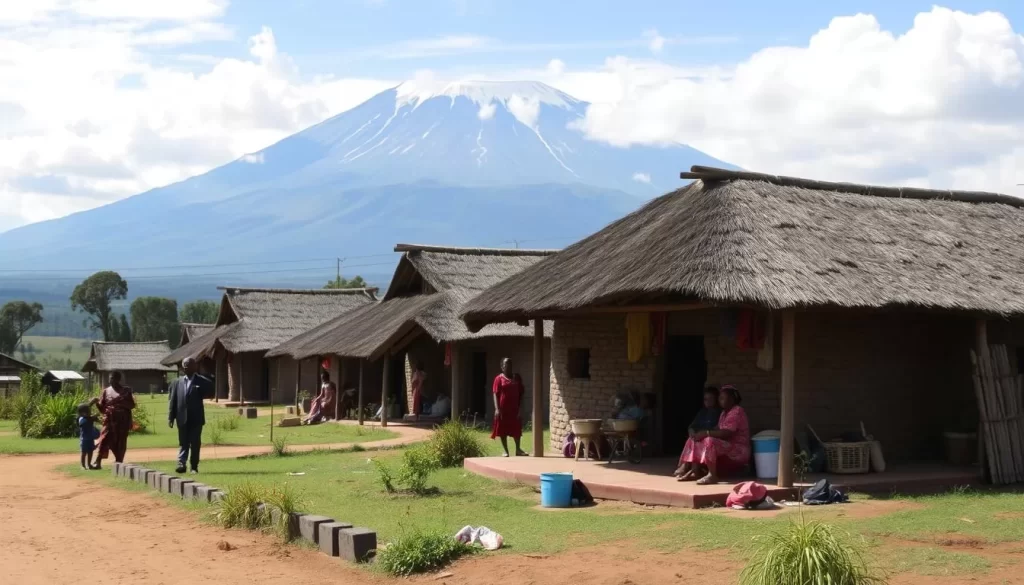
Located near the base of Africa’s highest peak, Marangu village is a cultural hub waiting to be explored. As the starting point for the Marangu route to Mount Kilimanjaro, this village offers a unique glimpse into the lives of the Chagga people.
Chagga Caves and History
The Chagga caves, built over 200 years ago, are a testament to the engineering prowess of the Chagga people. These underground tunnels were originally used as hiding places during tribal wars with the Maasai. Today, they stand as a historical landmark, offering insights into the region’s past.
The village is also steeped in history related to Mount Kilimanjaro climbing. Stories of Dr. Hans Meyer, the first European to climb Kilimanjaro in 1889, and his local guide, Yohano Lauwo, who lived for over 115 years, are shared by tribal elders during cultural tours.
Traditional Food and Banana Beer
During your visit to Marangu village, you can sample traditional Chagga food, including dishes made with bananas, beans, and local vegetables. The process of making banana beer, a traditional Chagga beverage, is also a highlight, offering a unique tasting experience.
Most cultural tours in the village include traditional music and dance performances, showcasing the rich heritage of the Chagga people. While you’re there, you might even have the opportunity to participate in a coffee tour, learning about the coffee-making process from local farmers.
Moshi, Tanzania: Best Things to Do for Wildlife Enthusiasts
If you’re a wildlife enthusiast, you’ll find Moshi to be a treasure trove of experiences that let you explore the natural world. The area is replete with opportunities to engage with the local flora and fauna, making it an ideal destination for nature lovers.
Rau Forest Reserve
Just 3km southeast of Moshi lies the Rau Forest Reserve, a hidden gem perfect for those seeking tranquility and a chance to connect with nature. The reserve boasts clean groundwater, fresh air, and the Rau River, which collects water from the slopes of Mount Kilimanjaro. You can explore the area on foot with guides or enjoy a bike ride on rented bicycles, taking in the serene surroundings without the crowds.
The Rau Forest Reserve is home to 71 species of trees, including the East African endemic Prioria msoo and the ancient African teak (Milicia excelsa), also known as mvule in Swahili. This ancient teak is estimated to be around 200 years old and stands at an impressive 51 meters tall. As you explore the forest, you might spot stunning colobus monkeys, blue monkeys, and small forest antelopes, along with various butterflies, birds, and insects.
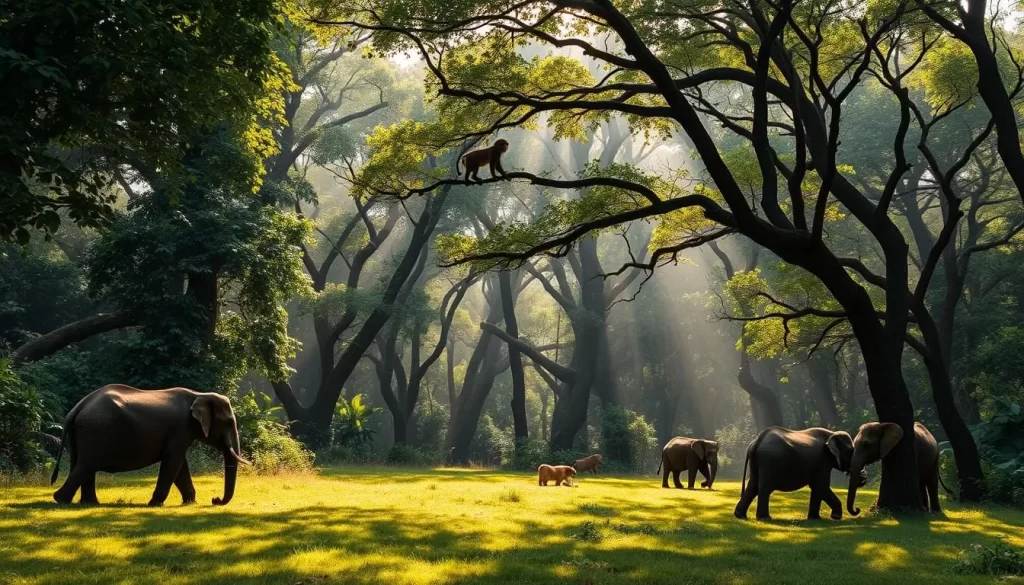
Kilimanjaro Animal CREW
The Kilimanjaro Animal CREW (Center for Rescue, Education and Wildlife) is located at Makoa Farm on the slopes of Kilimanjaro. This facility cares for rescued, injured, and orphaned animals from nearby national parks, providing a unique opportunity to see primates, serval cats, wild donkeys, bush pigs, and other animals up close.
Day Trips to Nearby National Parks
Moshi is also a great base for day trips to nearby national parks. For instance, Arusha National Park is just 1.5 hours away and offers walking safaris where you can see zebras, giraffes, buffalo, and antelopes. The park’s diverse wildlife and landscapes make it an exciting day trip destination.
| Attraction | Location | Main Attractions |
|---|---|---|
| Rau Forest Reserve | 3km southeast of Moshi | 71 species of trees, ancient African teak, colobus monkeys |
| Kilimanjaro Animal CREW | Makoa Farm, slopes of Kilimanjaro | Rescued animals, primates, serval cats, wild donkeys |
| Arusha National Park | 1.5 hours from Moshi | Walking safaris, zebras, giraffes, buffalo, antelopes |
Local Markets and Shopping
To truly experience Moshi, you need to visit its bustling local markets. The markets are not just places to shop; they are vibrant hubs of local culture and community life. Here, you can find everything from fresh produce to unique souvenirs, making them a must-visit destination for any traveler.
Memorial Market
The Memorial Market, also known as Soweto Memorial Market, is a bustling clothing market primarily featuring second-hand clothes. You can find a wide variety of items, including shoes, accessories, and vintage clothing options. This market is excellent for home shopping if you’re in town for a few weeks or months.
Mbuyuni Market
Mbuyuni Market, often referred to as the “Big Market,” is the central market for fresh produce and everyday items. Here, you can find the freshest vegetables, tropical fruits like passion fruits, mangoes, avocado, and papaya, as well as household items and local fabrics. It’s a great place to experience the local way of life.
Souvenir Shopping Tips
When shopping for souvenirs, consider visiting artisan shops like Blue Zebra and Chui’s Trading Limited for quality items. Look for local crafts such as Maasai jewelry, kitenge fabrics, wood carvings, and coffee products. Remember to bargain; it’s part of the shopping culture. A polite “Hapana, asante” (No, thank you) can go a long way in negotiations.
- Explore local markets to experience authentic Tanzanian culture.
- Visit Memorial Market for second-hand clothes and vintage items.
- Mbuyuni Market is ideal for fresh produce and household items.
- Bargain when shopping, and don’t be afraid to say “Hapana, asante.”
- Look for local crafts and artisan shops for unique souvenirs.
Maasai Cultural Experiences
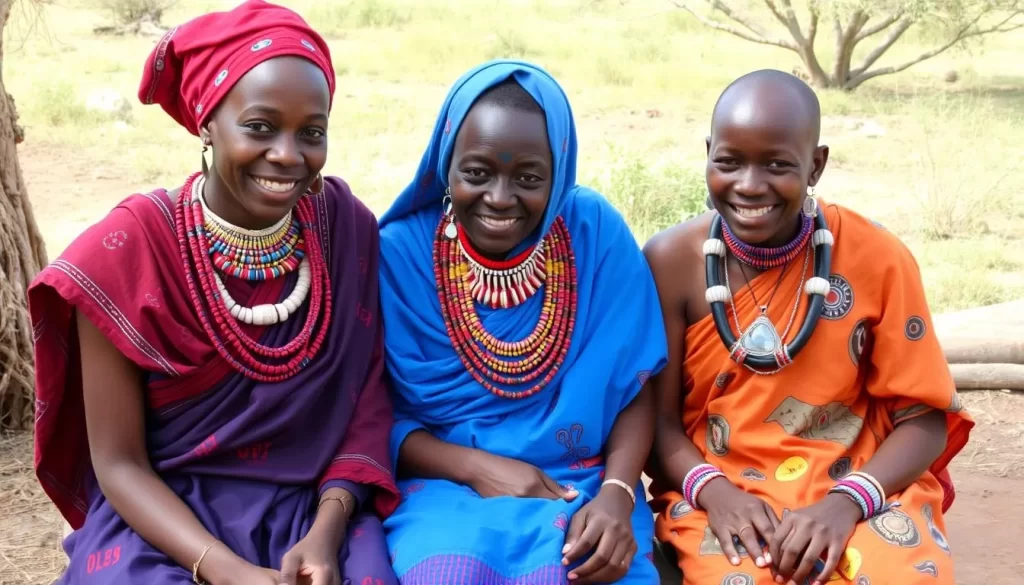
Discover the authentic Maasai culture by visiting their villages and learning about their way of life, deeply connected to the land and wildlife. The Maasai are one of Africa’s most distinctive and culturally rich tribes, known for their tall stature and colorful shukas. Traditionally, they are nomadic pastoralists, living close to national parks in Tanzania and Kenya.
Olpopongi Maasai Cultural Museum
The Olpopongi Maasai Cultural Museum, located 74 kilometers from Moshi between Arusha and Moshi, provides a unique opportunity to experience authentic Maasai culture. This government-built facility was designed to protect traditional Maasai communities while offering tourists an immersive cultural experience. The museum is laid out like a typical Maasai homestead, complete with manyattas (homes) and kraals (livestock enclosures), giving visitors a glimpse into the daily lives of the Maasai people.
Authentic Maasai Village Visits
In addition to the museum, visitors can participate in authentic Maasai village visits, arranged by local tour operators such as Oserok Trips. These visits allow you to meet real Maasai families and learn about their daily lives, including their religious, political, and social structures. It’s essential to approach these visits with respect and sensitivity towards the indigenous community, supporting ethical tourism practices.
By engaging with the Maasai people in their village, you can gain a deeper understanding of their history, traditions, and the challenges they face in the modern world. This experience not only enriches your travel but also contributes to the local community’s well-being.
Biking and Outdoor Adventures
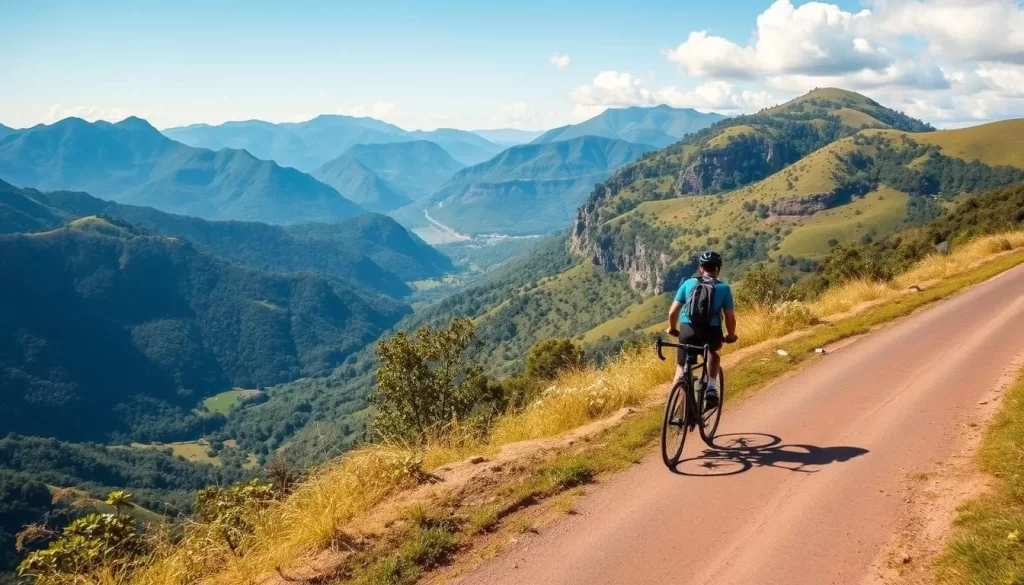
Biking is a great way to discover Moshi, offering a fun and eco-friendly way to explore the town and its surroundings. Moshi’s relatively small size and light traffic make it an ideal place for exploring by bicycle.
City Bike Tours
City bike tours are a fantastic way to see Moshi’s highlights. You can join a guided tour with companies like Kili Bike Adventures, which offer knowledgeable local guides. These tours typically cover the town center, residential areas, and scenic viewpoints, giving you a comprehensive view of Moshi’s culture and daily life.
Bikes can be rented for independent exploration or as part of organized tours, allowing you to enjoy the trip at your own pace.
Mountain Biking Experiences
For the more adventurous, mountain biking experiences on the slopes of Kilimanjaro and surrounding areas offer a thrilling way to explore the great outdoors. You can choose from different difficulty levels and terrain types, ensuring that there’s something for every mountain biking enthusiast.
Biking to attractions like the hot springs or coffee plantations not only combines transportation and sightseeing but also allows you to enjoy the scenic beauty of the place. For nature lovers, biking through Rau Forest Reserve is a particularly rewarding experience.
Best Restaurants and Cafés in Moshi
The culinary scene in Moshi is more vibrant than you might expect, offering a range of local and international cuisine. As you explore this charming Tanzanian town, you’ll discover a variety of dining options that cater to different tastes and preferences.
Local Tanzanian Cuisine
Moshi is home to numerous eateries serving traditional Tanzanian dishes. You can enjoy local favorites such as chipsi mayai (potato omelet), kachumbari salad, and ugali (cornmeal porridge) at restaurants like East Africa Pub, Green Bamboo Restaurant, and Secret Garden Hotel Restaurant. These establishments offer an authentic taste of Tanzanian food, with dishes often served with stew and greens, and traditionally eaten by hand.
Some popular local beverages include ginger tea, milk tea, cold soda, and local beers. Traditional Tanzanian food is simple yet flavorful, primarily consisting of rice, legumes, green vegetables, chicken, and fruits. You can also try samosas, fried pastries typically filled with meat, and other street food options like mishkaki (skewered meat) and fried cassava with spices.
International Dining Options
In addition to local cuisine, Moshi offers a range of international dining options. Restaurants like Indo Italiano serve a fusion of Italian and Indian food, while Jay’s Kitchen offers Korean cuisine, and Milan’s specializes in Indian vegetarian dishes. You can also find fusion restaurants that blend local and international flavors, providing a unique dining experience.
These international eateries, along with local restaurants, make Moshi a great place to explore different culinary traditions. Whether you’re in the mood for something familiar or want to try something new, you’ll find a variety of options to suit your taste.
Coffee Shops and Bakeries
Moshi is known for its coffee culture, with several excellent coffee shops and bakeries. Union Coffee, which has been operating since the 1930s, is a must-visit for coffee lovers. Other specialty cafés like Fifi’s, Kilimanjaro Coffee Lounge, and Maembe Cafe offer great coffee and light meals, making them perfect places to relax and enjoy your day.
You can also support local community development by dining at social enterprise eateries like More Than a Drop Restaurant and Shirikisha. With its diverse dining options, Moshi is a great town to explore on foot, discovering new restaurants and cafés along the way.
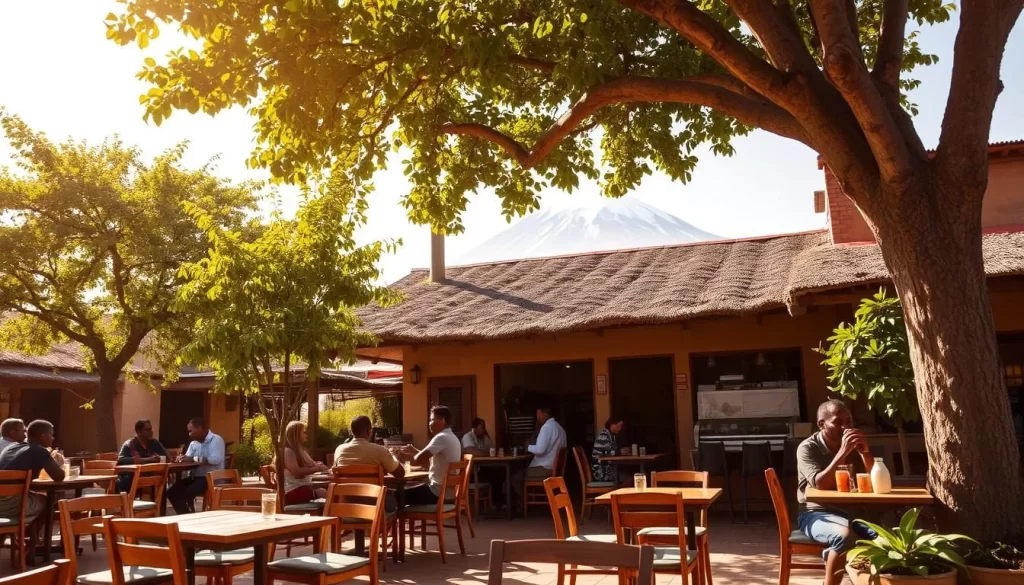
Nightlife and Entertainment
Despite its small size, Moshi boasts a vibrant nightlife scene that’s sure to keep you entertained. From Friday evening to Sunday morning, the town comes alive with various options for people looking to have a good time.
Popular Bars and Clubs
Moshi is home to a variety of bars and clubs that cater to different tastes. You can visit Pamoja Bar, a favorite hangout place for volunteers, expatriates, and tourists, featuring a resident DJ playing the latest hits. Other popular spots include Redstone, Black Diamond, and Pub Alberto. If you’re looking for a more relaxed atmosphere, Kool Bar and Peter’s Club are excellent choices for meeting friends and enjoying a chat.
Live Music Venues
For those who enjoy live music, Malindi Club is a must-visit, featuring local musicians every Friday evening. On Saturdays, you can showcase your singing talents at their karaoke nights. Many venues also offer outdoor seating areas, perfect for enjoying Moshi’s pleasant evening temperatures. Be sure to try local drinks like Kilimanjaro beer, Safari beer, and Konyagi, Tanzania’s answer to vodka.
| Venue | Features | Atmosphere |
|---|---|---|
| Pamoja Bar | Resident DJ, Pool | Lively |
| Malindi Club | Live Music, Karaoke | Energetic |
| Kool Bar | Relaxed Hangout | Quiet |
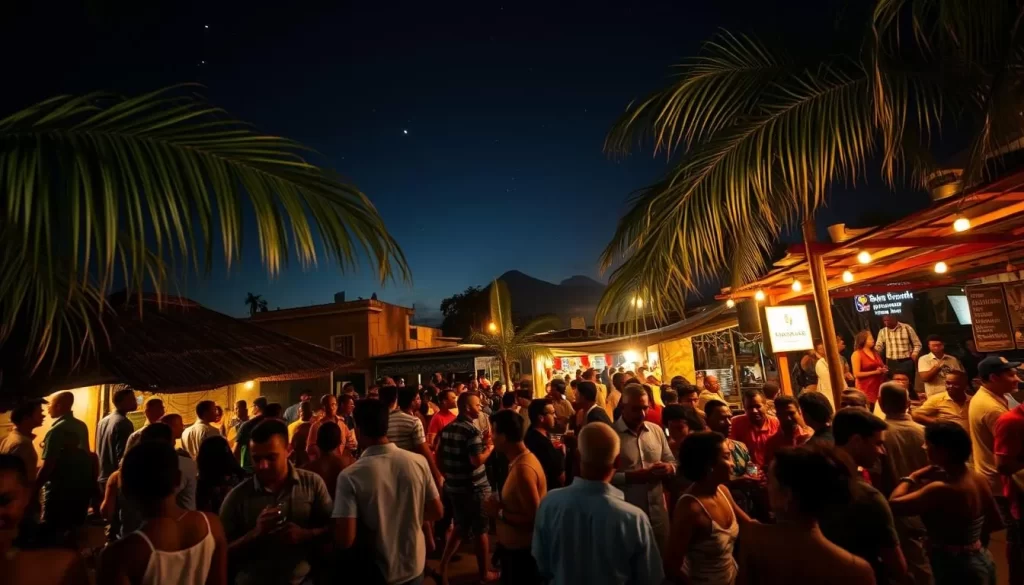
Where to Stay in Moshi
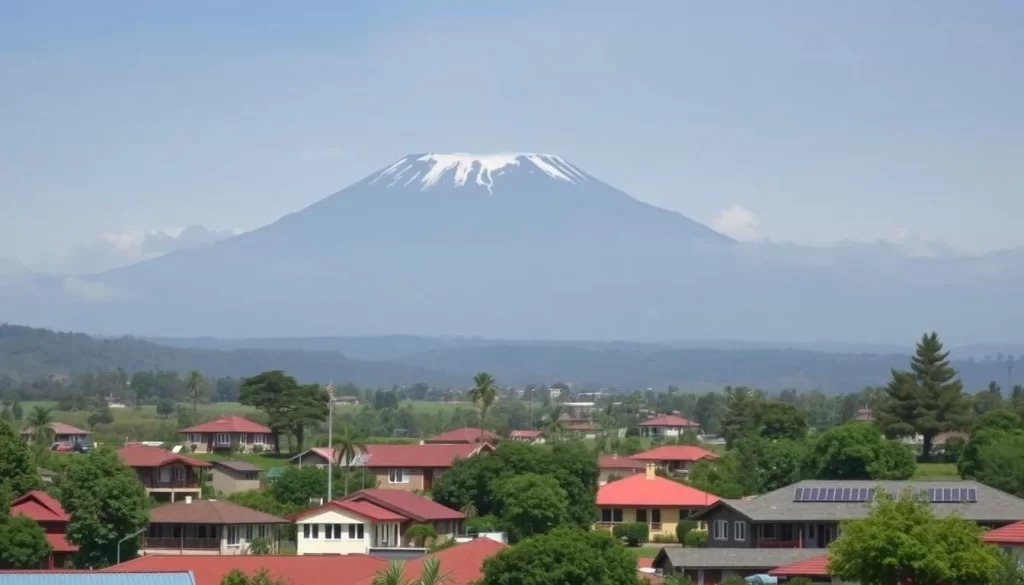
Whether you’re a backpacker or a luxury traveler, Moshi has a plethora of options for you to choose from. The town offers a range of accommodations that cater to different budgets and preferences, ensuring that you find the perfect place to stay.
Budget Accommodations
For travelers on a tight budget, Moshi offers several affordable options. Rafiki Backpackers is a popular choice, providing a great atmosphere for meeting other travelers and enjoying mountain views. Another option is More Than a Drop, a vocational school that also operates as a bed and breakfast, offering a serene garden and stunning views of Kilimanjaro.
Mid-Range Hotels
If you’re looking for something a bit more comfortable, Moshi has several mid-range hotels. The Secret Garden is a charming option, with African-decorated rooms and a good restaurant. Kili Wonders Hotel is another great choice, featuring modern amenities, a pool, and a rooftop bar with fantastic views of Kilimanjaro. You can also consider Ameg Lodge and Honey Badger Lodge, both known for their beautiful gardens and comfortable facilities.
Luxury Lodges
For those seeking a more luxurious experience, Moshi is home to some exceptional high-end lodges. Pink Flamingo is a tastefully decorated boutique hotel that offers family cottages and private pools, providing a truly indulgent stay. Another luxurious option is Kaliwa Lodge, set in a lush forest with breathtaking views of the Weru Weru Rift and Mount Kilimanjaro.
Many hotels in Moshi, including some of the ones mentioned, offer day passes to their pools for non-guests. This is a great way to cool off and relax, even if you’re not staying at the hotel. You can try places like Kili Wonders Hotel, Ameg Lodge, Honey Badger Lodge, or Weru Weru River Lodge for a refreshing afternoon by the pool.
Day Trips from Moshi
Moshi’s strategic location makes it an ideal base for exploring nearby natural attractions and national parks. You can easily take day trips to various destinations, experiencing the diverse wildlife and landscapes that Tanzania has to offer.
Arusha National Park
Arusha National Park is the closest national park to Moshi, approximately an hour and a half away, making it perfect for a day trip. The park offers unique walking safari opportunities, allowing you to spot zebras, giraffes, buffalo, and other animals on foot. You can also enjoy kayaking on Lake Momella, taking in the breathtaking views of Mount Meru.
Tarangire National Park
Tarangire National Park is another gem worth visiting. Known for its large elephant herds and diverse wildlife, including lions, leopards, and cheetahs, Tarangire offers an unforgettable safari experience. The best time to visit is from June to October, when animals congregate around waterholes.
| National Park | Distance from Moshi | Main Attractions |
|---|---|---|
| Arusha National Park | 1.5 hours | Walking safaris, kayaking on Lake Momella |
| Tarangire National Park | 2 hours | Large elephant herds, diverse wildlife |
| Lake Jipe | 2 hours | Canoe safaris, fishing trips, elephant sightings |
Lake Jipe
Lake Jipe is a tranquil destination located on the Tanzania/Kenya border, about two hours from Moshi. You can enjoy canoe safaris through the reeds, fishing trips, and opportunities to see elephants in their natural habitat.
With these day trip options, you can experience the best of Tanzania’s natural beauty and wildlife, making Moshi an excellent base for your adventures.
Conclusion: Making the Most of Your Moshi Adventure
With its unique blend of natural beauty and cultural richness, Moshi is more than just a stopover before or after climbing Mount Kilimanjaro. The town offers a diverse range of activities and experiences, from hiking and biking to exploring local coffee plantations and immersing in the authentic East African culture.
To truly appreciate what Moshi has to offer, consider spending at least 3-5 days in this charming town. This allows you to mix adventure activities with cultural experiences and relaxation time, creating a well-rounded and memorable trip. As visitors explore the area, they’ll discover that Moshi’s coffee culture, friendly locals, and stunning landscapes make it a special destination.
By supporting local businesses and community initiatives during your stay, you’ll be contributing to the local economy and taking home more than just memories. Moshi provides an authentic experience away from the tourist crowds, making it an ideal destination for travelers seeking a genuine connection with the local culture and coffee traditions.
The above is subject to change.
Check back often to TRAVEL.COM for the latest travel tips and deals.
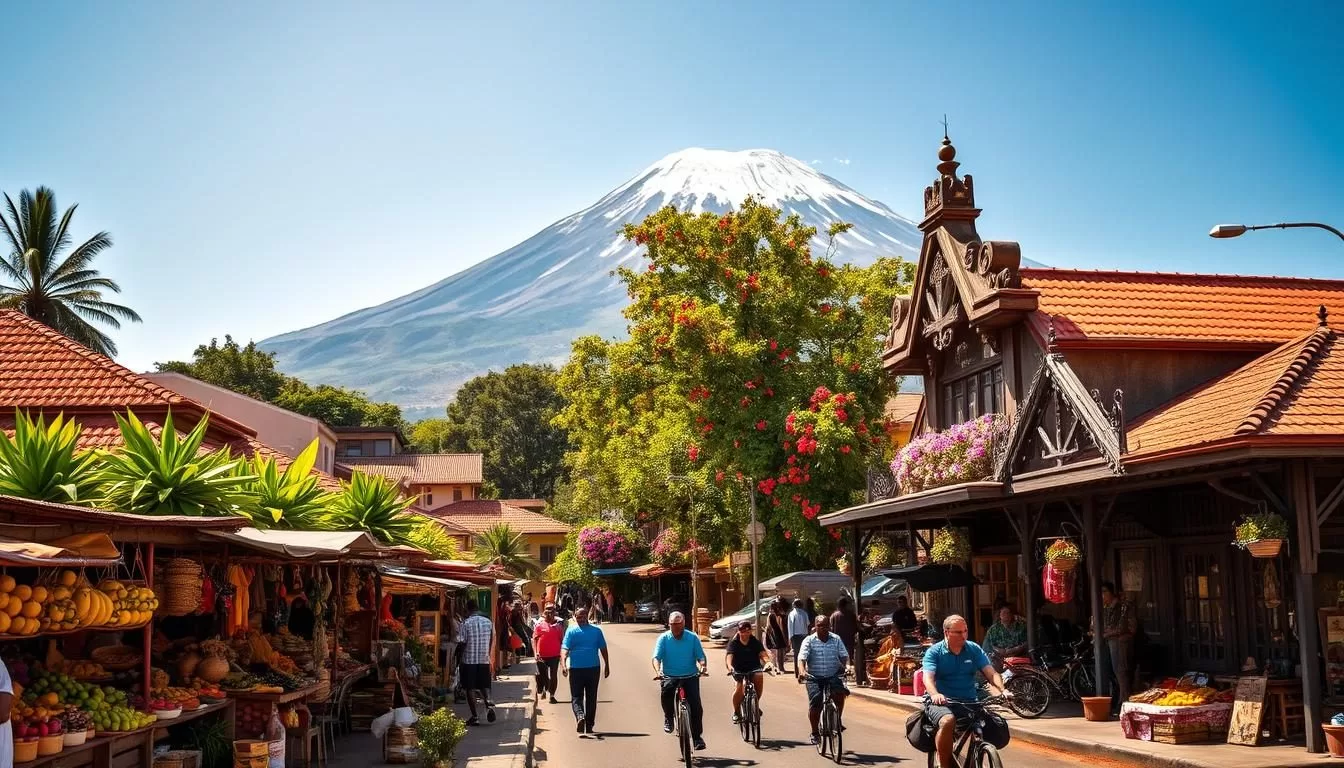
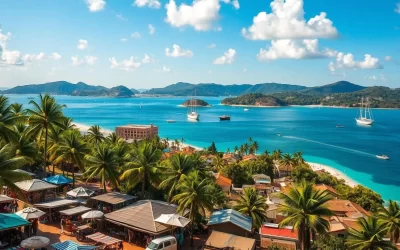
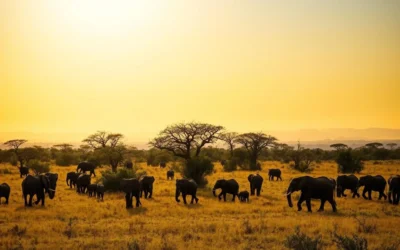
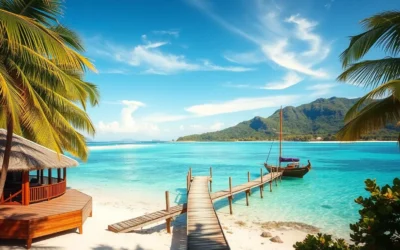
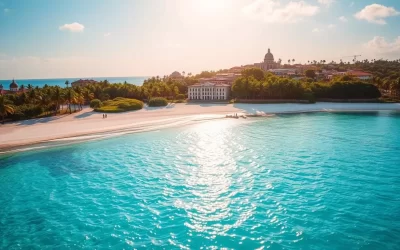

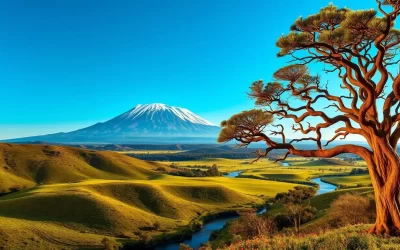
0 Comments